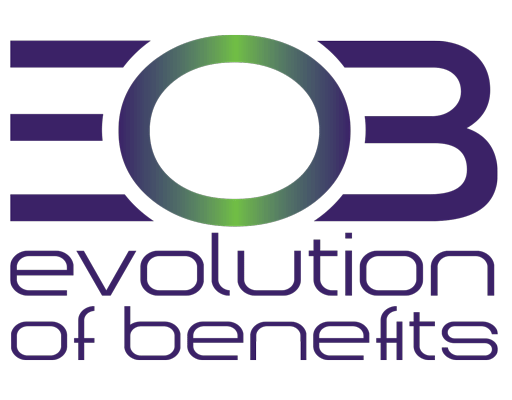HR Brief – The Trendiest Benefits for 2023

There’s no denying that employees’ needs have changed over the past few years, and many workers are paying more attention to their benefits and wondering how to stretch their dollars further. Employers will want to offer benefits to meet evolving worker needs shaped by the lingering effects of the COVID-19 pandemic and rising inflation.
This article highlights benefits that are likely to be popular in 2023.
Voluntary Benefits
A rising number of organizations recognize that voluntary benefits are advantageous to employees and their families—and many come at no cost to the employer. Examples of trending benefits include hospital indemnity, disability, accident, life and pet insurance.
Posted on January 5, 2023 by EOB
HR Brief – EEOC Updates Workplace Poster

Recently, the Equal Employment Opportunity Commission (EEOC) issued a new poster titled “Know Your Rights, Workplace Discrimination is Illegal,” which updates and replaces the previous “EEO is the Law” poster. Under the Title VII of the Civil Rights Act (Title VII), the Americans with Disabilities Act (ADA) and other laws enforced by the EEOC, employers with 15 or more employees must prominently display the new poster at their work sites. Laws enforced by the EEOC generally prohibit employment discrimination based on certain protected traits, including race, color, religion, national origin, sex, disability and age. These laws also require employers to display a workplace poster that describes their prohibitions and requirements.”:
Employer Takeaways
The new “Know Your Rights” poster includes the following differences from the previous version:
Posted on December 3, 2022 by EOB
HR Brief – 5 Tips for Effective 2023 Open Enrollment Communication

Now more than ever, employees are looking to their employers for guidance on navigating their available benefits. Employees are likely paying more attention this year as they navigate record-high inflation and work to maximize every hard-earned dollar.
During the 2023 open enrollment season, employers should be poised to provide their employees with resources and tools they can use to better understand and act with more confidence when making benefits decisions.
Consider these five tips to enhance communication about benefits:
Consider these five tips to enhance communication about benefits:
- Start early.
Get the word out early about benefits offerings so employees have ample time to understand their benefits, consult with family members and determine their needs for the following year.
Posted on October 27, 2022 by EOB
HR Brief – Building Employee Skills With Microlearning

Addressing current and future skills gaps is a top workplace challenge for employers today. In addition, learning and development are key priorities for workers in today’s competitive labor market who may seek out a new employer if their current one does not offer the career development opportunities they desire.
While employers can approach these challenges in various ways, many are leveraging microlearning, which provides an affordable, feasible and time-friendly opportunity to build employee skills.
Posted on September 7, 2022 by EOB
HR Brief – Proposed Overtime Rule Expected in October 2022

In its spring regulatory agenda, the U.S. Department of Labor (DOL) announced its plans to issue a proposed overtime rule in October 2022. According to the agency’s regulatory agenda, this proposed rule is expected to address how to implement the exemption of executive, administrative and professional employees from the Fair Labor Standards Act’s (FLSA) minimum wage and overtime requirements.
Changes to minimum wage and overtime requirements under the FLSA could impact compliance costs and litigation risks for employers.
Posted on August 9, 2022 by EOB
HR Brief – What President Biden’s Vaccine Mandate Means for Employers

Recently, the White House directed the Occupational Safety and Health Administration (OSHA) to draft an emergency temporary standard (ETS) for private employers. Soon, employers with 100 or more employees (likely measured companywide, not by location) will need to adapt their vaccine policies and enforce one of the following:
• Require employees to get vaccinated against COVID-19
• Require unvaccinated employees to produce evidence of a negative COVID-19 test each week
DOL Announces Final Rule on Tip Regulations
Recently, the U.S. Department of Labor (DOL) announced a final rule that will amend Fair Labor Standards Act (FLSA) regulations for tipped employees. The final rule is expected to become effective on Nov. 23, 2021.
Posted on October 28, 2021 by Evolution of Benefits
HR Brief – August 2021 | Hybrid Work Models, Preventing Turnover Post-pandemic

Considering a Hybrid Work Model
Work flexibility is consistently cited as a post-pandemic trend, and many employers are already introducing hybrid work models in their reopening plans. A hybrid workplace is a flexible model designed to support a workforce of both on-site and remote employees.
A thoughtful hybrid workplace approach combines the best aspects of an organization’s on-site and remote workplaces. To best accommodate a distributed workplace, consider the following tips:
- Set clear expectations for which employees are eligible for hybrid work, and be transparent about any decisions.
- Formalize hybrid work request processes.
- Plan meetings that best accommodate all employees.
- Consider how project management and communication channels can foster company-wide collaboration.
Preventing Turnover Post-pandemic
Turnover is a common occurrence throughout any given year. However, during the COVID-19 pandemic, turnover rates fell dramatically. Now, a significant number of employees are unwilling to return to the status quo that was established pre-pandemic. That’s a major reason why experts predict a “turnover tsunami” coming in the latter half of 2021.
What Employees Want Post-pandemic
Generally, workplace survey data from the past year illuminates some commonalities between worker desires across industries. The following are some of the most coveted changes workers are looking for post-pandemic:
- Flexible work options
- Protection from burnout
- Competitive compensation
- Considerations for Employers
To stay ahead of these trends, employers will need to look inward toward their unique employee populations and determine what’s important to them. This inquiry may include surveying employees to learn about what they are looking for. To help meet the demands of a workforce, employers can consider implementing changes, such as:
- Providing remote or hybrid working arrangements
- Providing flexible scheduling options
- Adopting or expanding employee assistance programs to help with mental health and burnout
- Increasing compensation or bonuses
- Having managers meet more frequently with employees to discuss challenges and concerns openly
Posted on August 2, 2021 by Evolution of Benefits
July HR Brief: Employee COVID-19 Vaccine Cards; Attracting Top Remote Talent

Supporting Employees With Vaccine Cards
Employers can consider proactive steps to help ensure employees aren’t left without copies of their vaccine cards. These steps include encouraging employees to keep their cards in a safe place and to take a photo of their card, and providing employees with protective sleeves for their card. Click the link below for the full article.
Attracting Top Remote Talent
Remote work is quickly becoming a desirable benefit in today’s labor market as many employees desire flexible work options. As more organizations embrace long-term remote or hybrid workplace models, employers will continue to compete for their industry’s top candidates. Click the link below for the full article.
Posted on July 1, 2021 by Evolution of Benefits
June HR Brief: Protecting Teams from Burnout; EEOC Opens EEO-1 Reporting Portal for 2019 and 2020 Data

- The portal for private-sector employers to submit equal employment opportunity (EEO-1) workforce data from 2019 and 2020 is now open, the U.S. Equal Employment Opportunity Commission (EEOC) recently announced. The deadline for submissions is July 19, 2021. This data collection was previously delayed due to the COVID-19 pandemic.
- Burnout is a commonly discussed issue amid the COVID-19 pandemic. Oftentimes, it’s HR’s responsibility to help employees cope with burnout and its contributing factors. In many cases, that leaves HR teams without lifelines of their own. However, HR professionals can take steps to stay afloat when feeling overburdened.
Posted on May 31, 2021 by Evolution of Benefits
May HR Brief: Using Technology in Learning and Development

- Skill training and development are essential in every organization. Employers can consider online or technology-supported training as an investment to both their employees and organization. Contact Evolution of Benefits today to learn more about learning and development, and download HR Brief for more about the key types of training programs and how technology could improve the employee experience.
- During the COVID-19 pandemic, many recruiting budgets have been slashed, and employers are struggling to find talent. However, virtual recruitment can help HR teams address talent shortages. Virtual recruitment is the process of pursuing, vetting and hiring candidates electronically. Download the HR brief for strategies.
Posted on May 2, 2021 by Evolution of Benefits
Client and Employee Resources
![]() The more your employees understand your benefit plans the more they become educated, empowered consumers. The programs you provide will also gain an enhanced value.
The more your employees understand your benefit plans the more they become educated, empowered consumers. The programs you provide will also gain an enhanced value.
As your strategic partners in employee benefits, we can provide multiple avenues of ongoing support, including:
- Employee Meetings (English and Spanish)
- Webcasts
- Payroll Stuffers
- Poster Campaigns
- Newsletters
Recent Posts
- Recipe of the Month – Mediterranean Tuna Antipasti Salad (March) March 1, 2025
- The Power of Protein(March) March 1, 2025
- Benefits Buzz – ERISA Fiduciary Breach Claims Dismissed in Prescription Drug Lawsuit (March) March 1, 2025
- HR Brief – Newly Passed Legislation Modifies ACA Reporting Requirements HR Brief – (March) March 1, 2025
- Career Elevator: The Importance of Peer-to-Peer Praise (November) November 27, 2024
- In the Loop – November November 21, 2024
- Benefits and Me: Maximizing Your Open Enrollment (November) November 19, 2024
- HR Brief – OSHA Proposes Heat Injury and Illness Prevention Standard (November) November 14, 2024
- Mental Health Minute (November) November 7, 2024
- American Diabetes Month (November) November 6, 2024
Newsletter and Article Categories
E-Verify is a web-based system that allows enrolled employers to confirm the eligibility of their employees to work in the United States. Click the image below to begin.




















